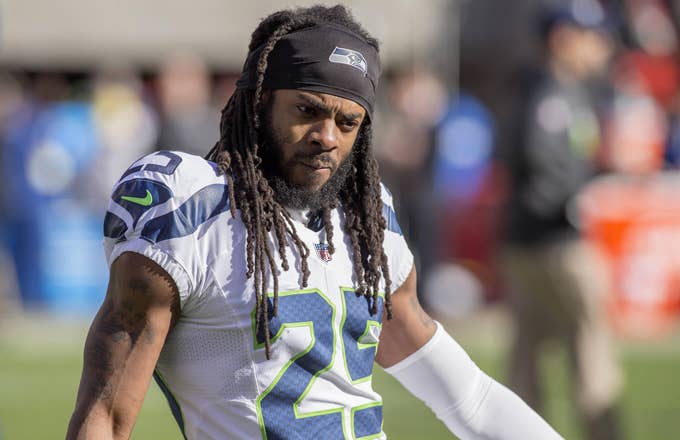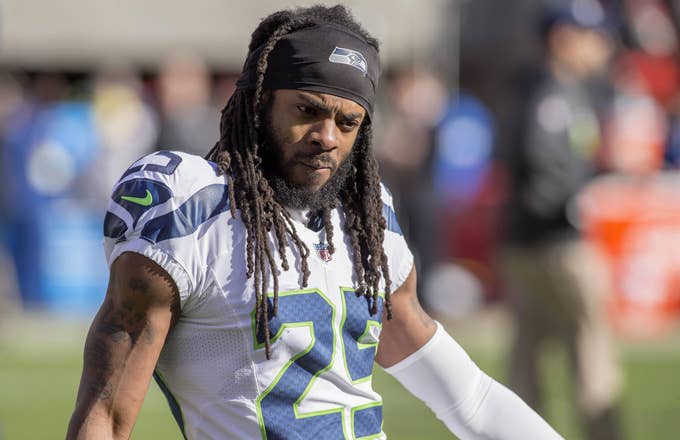
Richard Sherman made waves last month when he threatened to ruin a reporter’s career. “I’ll make sure you don’t get your media pass any more,” Sherman told Jim Moore of seattlepi.com after a testy exchange following a press conference.
Sherman later apologized for his threat on Twitter…well, sort of.
I appreciate the role the media plays and they have a tough job. I let it get personal today and I regret that. Next one should be fun
The exchange happened after Moore questioned Sherman about a fiery conversation between him and Seattle’s offensive coordinator, Darrell Bevell. Sherman was clearly upset the Seahawks had thrown the ball on the 1-yard-line (again) and he let Bevell know it.
“I’d rather do what most teams would do—would make a conscientious decision and run the ball straight up the middle,” Sherman said.
In a new SI.com feature, Sherman shed some light on his confrontation with Moore—and on a larger scale, his recent “media blackout.”
“I think nowadays it’s getting increasingly difficult to deal with media outlets because it’s about getting clicks,” Sherman said. “It’s not their fault; it’s their job.”
Yes and no. Sherman kind of gets it. Getting clicks is a part of the job that factors into a story’s presentation, but it’s not the whole package. Most reporters have ethics.
“Their editor is saying, ‘Do whatever you have to do to get clicks,’” Sherman said. “You can slander people, misquote people, and there’s no policing it. Instead, I can direct all the traffic to social media or my own website, and get the truth out.”
This is where Sherman lost me. Very, very few editors have a clicks-above-all-else philosophy; accuracy is most important, and then you try to find the most compelling angle for your readership because, yes, clicks lead to advertisers, and advertisers pay the bills.
Granted, his point about player-driven content does hold weight; that’s exactly why so many athletes are going directly through The Players’ Tribune or UNINTERRUPTED nowadays.
But, in the end, this seems like Sherman is trying to paint himself as the victim in a situation where he is not. He was probably wrong to lash out at his offensive coordinator, but he was definitely wrong to threaten to ruin a reporter’s career.

